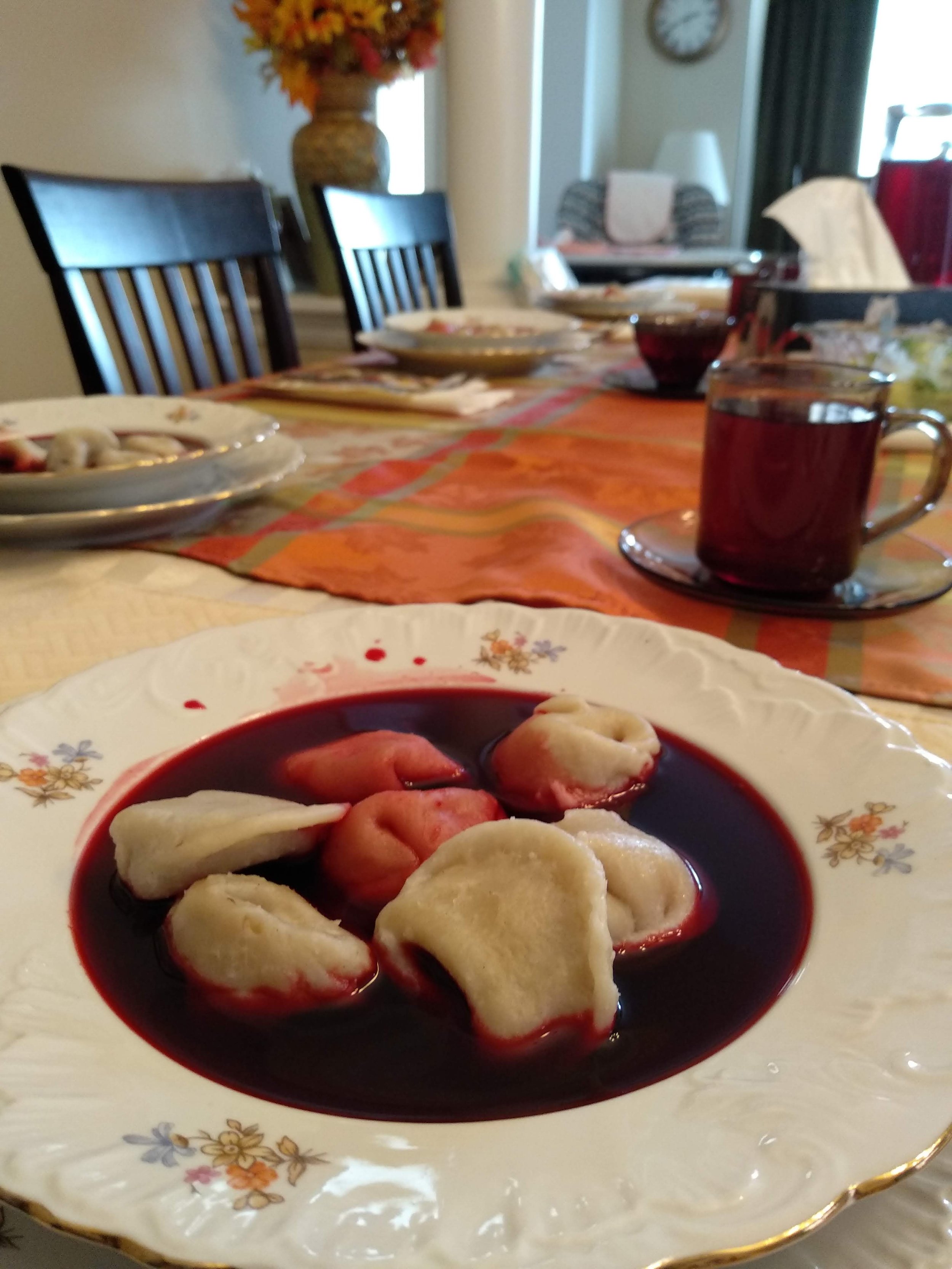Celebrating Polish Christmas Wigilia in Mississauga
/Mississauga’s Polish community will soon be gearing up for Christmas celebrations. Every year, my husband and his family get together to celebrate the Polish Christmas tradition of Wigilia (pronounced Vi-gil-ia). Having joined his family, it is now one of my favourite traditions as well that I look forward to every year. The Christmas Eve Supper is one of the most long-lasting Polish traditions, which can be found in the homes of believer, non-believers, new immigrants and more established Polish Canadians- it is truly a tradition for everyone.
There is a reason for that. Traditionally, a lighted candle is put in the window to symbolize the hope that the baby Jesus, in the form of a stranger, may come to share the Wigilia supper. An extra place is set at the table for the unexpected guest and there is an old Polish adage which says, "A guest in the home is God in the home,” or “Gosc w dom, Bog w dom” in Polish. Even for families who no longer follow such rules so strictly have kept the spirit of the holiday. As an outsider myself, I experienced this form of acceptance on my first Wigilia (and every Wigilia after).
The feast begins typically when the first star is seen in the sky. Much fun and merry is made as children wait eagerly by the window for the star to usher in a delicious Christmas feast. But before eating can commence, we typically say a prayer and then everyone breaks the wafer, known as the opłatek (pronounced o-pwa-tek), with one another. How we practice it with my husband’s family is that we go to each member of the family (pets and children included) and we share a brief moment of wishing each other good health, and luck and happiness in the New Year, though of course our wishes differ for each person. We then break off a piece of the other person’s wafer and eat it. The opłatek is a thin, unleavened wafer similar to the altar bread in the Roman Catholic Church and is typically stamped with the figures of Jesus, Mary, angels and other biblical imagery. This tradition is perhaps one of the only times of year when we have an excuse to tell our loved ones how much we care. It is so special that Poles who cannot make it back home for Wigilia will sometimes be sent the opłatek through the mail.
With all that gushy stuff out of the way with, it is time for the meal. Well, not quite. I must set the scene for you before I go on. Blanketed over the table is a white tablecloth. In some households, hay is put under the tablecloth to symbolize Jesus’ birth in a manger. Children may playfully remove a piece of straw and the colour of the straw is said to symbolize their future: green means marriage and wealth, black for bad luck, and so on.
As with many Polish babcias (Polish grandmothers), my mother-in-law is a whiz in the kitchen and always wants to have something for everyone, so we have tables upon tables of food. Over 20 dishes at least! Although there is some theological debate, the Wigilia meal is typically meatless. Dinner usually kicks off with red borscht (Barszcz Czerwony) with stuffed dumplings known as “Uszka”, meaning ears because… well, that’s exactly what they look like. Other dishes include mushroom soup, boiled potatoes (kartofle), pickled herring (sledzie), fried fish, pierogi, beans and sauerkraut (groch i kapusta), a dried fruit compote, babka, cake (placek), assorted pastries, nuts and candies. One particularly fond memory my husband has is walking into the washroom leading up to Christmas only to find a carp from the Polish plaza (on Dixie and Burnhamthorpe) swimming in the bathtub! Looking to get the freshest fish, many Poles will remember their own version of the “Christmas Carp” story.
With many Polish families in Mississauga mixing with other cultures and traditions, it is also not uncommon to mix many of these more traditional foods with other cultural food. For example, for last Wigilia, our family had homemade Sorrel, a Jamaican hibiscus and ginger mulled drink, alongside the traditional compote drink. I was very touched to see that my own Christmas tradition of Sorrel was included. With Mississauga being so multicultural, I would not be surprised if many others had similar experiences.
With all this yummy food, it is customary to try at least a little bit of each dish. It is sometimes said to children that the number of dishes they do not eat foretells the amount of missed opportunities they will have in the coming year. Although, I suspect this is simply a means to get picky children to eat their food. My mother-in-law also used to say that how you act on Wigilia will dictate how you will be for the rest of the year- so you better be good! Once again, I’m sure this is less theological tradition rather than a convenient excuse for children to behave.
All in all, Wigilia is perhaps one of the most fun and heartwarming Christmas traditions. Undoubtedly many Mississauga residents will be celebrating this year. To everyone celebrating Christmas this year, Merry Christmas and Wesołych Świąt!
















